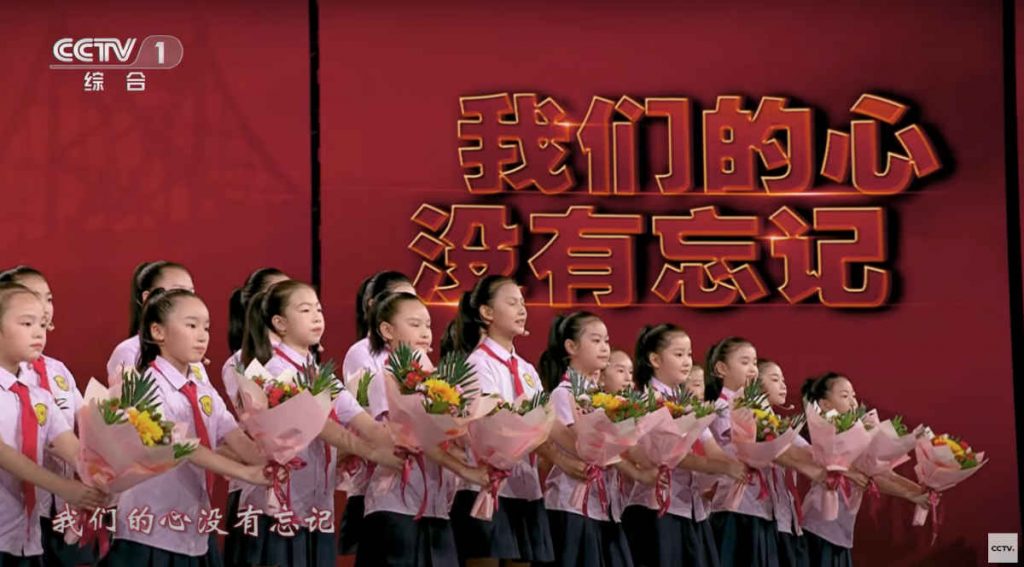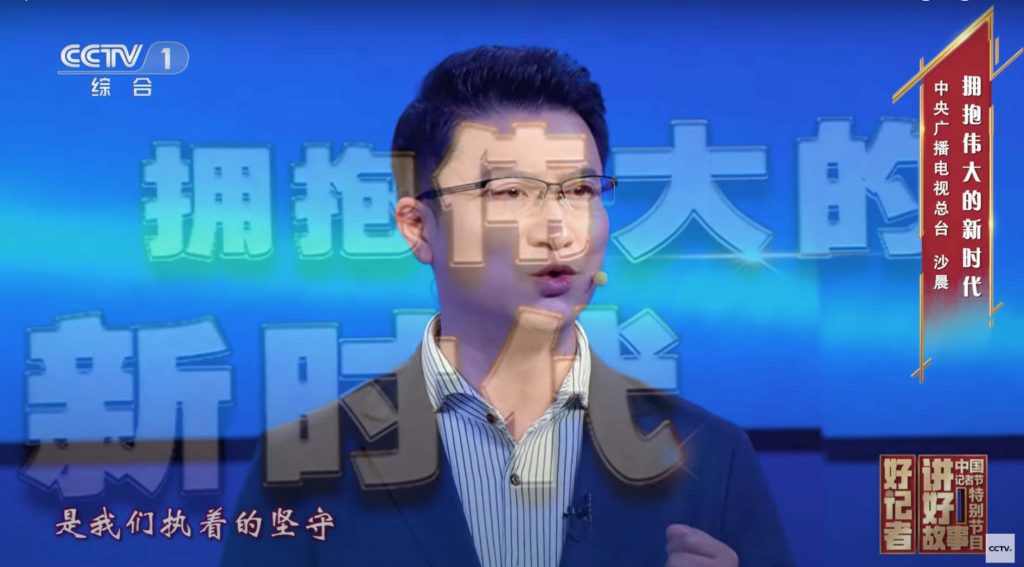
Last week, China marked its annual Journalists’ Day with an hour-and-a-half-long gala on state broadcaster CCTV. It was co-organized, tellingly, by the National Radio and Television Administration, the Central Propaganda Department, and the All-China Journalist’s Association, an ostensible professional organization whose primary role is not to represent media professionals but to regulate and control them.
The theme of the night, for the tenth year running, was “Good Reporters Tell Good Stories” (好記者講好故事). So what makes a “Good Story?” Let’s look at the exemplars showcased on the program: interviews with Korean War vets; PRC industrial breakthroughs; new agricultural technology; rural sporting events; infrastructure megaprojects.

Implicitly, “good stories” are those that put China’s rulers in the best possible light. Huge stories like China’s faltering economy and the purges in the top ranks of the Party-state are, of course, nowhere to be found (like former foreign minister Qin Gang, not seen since June). Where disasters like this summer’s flooding are touched upon, the story is authorities’ miraculous, life-saving response (and not, say, how floodwaters were diverted to people’s homes to keep Xi Jinping’s new capital Xiong’an dry). But there’s no need to read between the lines: as an award-winning reporter from Guizhou puts it, framing her story on rural basketball as a celebration of Xi Jinping’s poverty eradication campaign, good stories are “happy stories.”
Watchdogs or Weasels?
Since Journalists’ Day was created in 2000 as one of three professional holidays in China, the country’s leaders have consistently refused the media’s right to exist as a true profession, rather than as a proxy of Party-state power. But even so, the contrast between last week’s celebration and previous years’ is stark.
In 2011, for example, China Youth Daily marked the occasion by telling the harrowing tale of Fujian television journalist Deng Cunyao. A year earlier, Deng was grievously injured in a knife attack because of his critical reporting, uncovering local authorities’ embezzlements of funds meant for rural doctors.
“We publish this chilling report today,” wrote the China Youth Daily editor, “in order to pay our respects to those colleagues in journalism who are struggling on the front lines of watchdog journalism.”

One of the keynote speakers at the CCTV gala last week was Sha Chen, a presenter who joined the network in 2002. When he began his career 21 years ago, he recalls, “the goal we pursued was to get deep into the scene and to question what the truth really was.” Today, things are different. “A good journalist of the New Era,” he says, “uncovers the stories behind mainstream values and dares to speak out against violations of mainstream values.”
The bravery to rat out freethinkers? Whatever you call that, it’s a far cry from Deng Cunyao’s watchdog journalism of 2011.




















